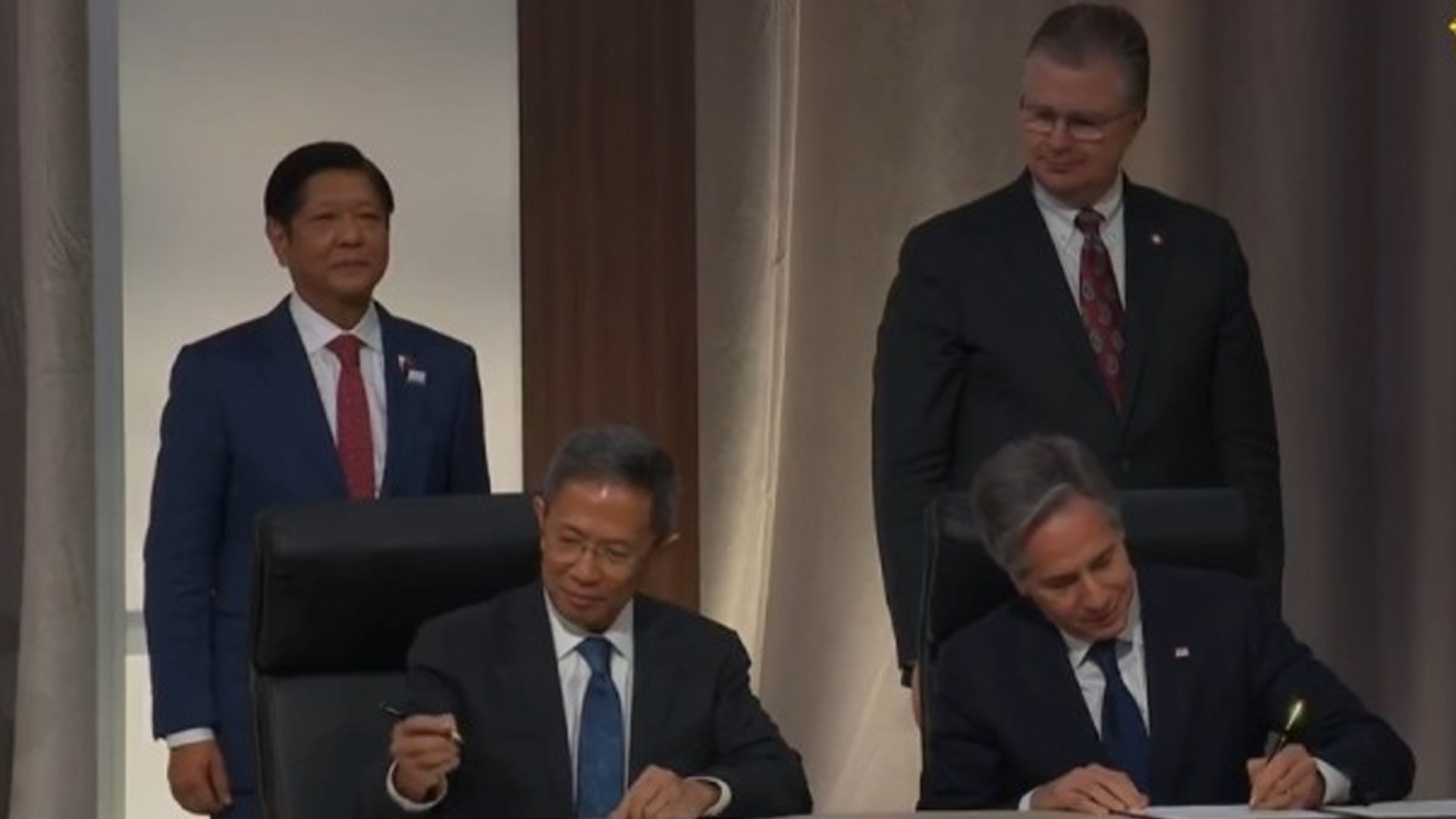The United States-Philippines Civil Nuclear Cooperation Agreement, or the 123 Agreement, entered into force on July 2, the US Department of State’s Office of the Spokesperson announced on Tuesday (Manila time).
Signed in November last year, the 123 Agreement will establish a legal framework that allows the export of nuclear fuel, reactors, equipment, and special nuclear material from the US to the Philippines.
The agreement lays the legal framework for potential nuclear power projects with US providers and aims to facilitate Philippine-US cooperation in the safe and secure use of nuclear energy, taking into full account the standards and safeguards set by the International Atomic Energy Agency, as well as in accordance with respective national laws, international agreements, and regulations.
Upon entry into force, the 123 Agreement will allow the transfer of information, nuclear material, equipment, and components directly between the Philippines and the US or through persons authorized by their respective authorities to engage in transfer activities, which will support potential nuclear power projects with US providers.
It will also pave the way for streamlining the licensing requirements for the private sector with respect to investments in nuclear-related intangible transfers of technology.
“Energy security is an increasingly critical global challenge requiring deliberate collaborative efforts, and together, our two countries can make a significant contribution to our shared clean energy goals,” the US Department of State said.
Nuclear energy, it said, could help achieve these global climate change and energy security targets.
The US Department of State said the agreement is part of its efforts to develop the Philippines’ civil nuclear sector.
“Creating a safe, secure, and modern sector requires a skilled workforce, robust regulations, and strong commercial partnerships. Our government is committed to working with the Philippines to advance each of these areas and we look forward to further building our partnership together,” the US Department of State said.
President Ferdinand R. Marcos Jr. earlier said the administration would be glad to pursue nuclear energy as part of the country’s energy mix by 2032 through the partnership forged with American providers.
His administration seeks to increase the country’s renewable energy mix to 35 percent by 2030 and 50 percent by 2040.
In her speech at the 16th US Embassy Media Seminar in Iloilo on Monday, US Ambassador to the Philippines MaryKay Carlson assured that the US is fully committed to supporting the country’s energy and climate goals.
Carlson said one concrete example of the US’ commitment is the signing of the civil nuclear cooperation agreement.
“As an ally and a partner, the US government is fully committed to supporting the Philippines in fulfilling that vision,” Carlson said.
Accelerating dev’t
Around 40 companies are expected to participate in the development of the Philippine nuclear energy, United States Embassy commercial counselor Paul Taylor said on Tuesday.
“Right now, we have 14 American companies that signed up for this industry-led civil nuclear industry working group. These 14 companies, we expect that to expand to as many as 40,” Taylor said during the 16th Media Seminar in Iloilo organized by the US Embassy in the Philippines.
“We expect to ramp up to 40, somewhere close to 40. These are companies that are providing technology, services, know-how that the Philippines will need to really accelerate the development of this industry sector,” he added.
Following the signing of the US-Philippines Civil Nuclear Cooperation Agreement or the 123 Agreement, the US chose Manila as the headquarters for the US Civil Nuclear Industry Working Group.
“The Embassy has created an industry lead working group made up of American companies that are looking to bring their technologies to the Philippines,” Taylor said.
Taylor said that while the lead working group will focus on the Philippines, it will touch a few other markets in Southeast Asia.
Taylor said the working group will have its first virtual meeting on July 31, to be participated in by representatives of US companies and the Philippine government.
“It’s really just an opportunity to sit around the virtual table and discuss how the US and the Philippines can work from a commercial standpoint [and] how are we gonna work more closely in this area,” he said.
“That’s probably the model that we will use for this industry-led working group because the companies are spread not only in the US but really all over the world, some are in Singapore and elsewhere,” he added.
Taylor said they are working with the Department of Energy for a supplier forum in November.
“We are expecting US companies to attend in person, have the opportunity to discuss partnerships with the Philippine [Department of Energy] and really begin to take very concrete steps to building the supply chain that will be needed for civil nuclear energy development projects here in the Philippines,” Taylor said. (PNA)








